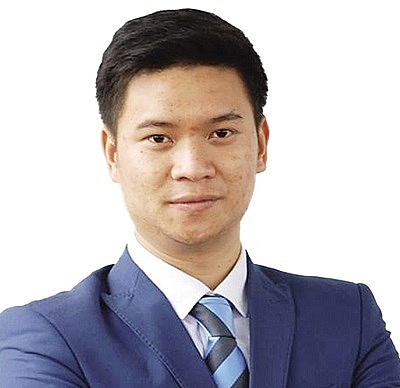Reinforcing law on supplementary food
 |
Are legal provisions enough to manage the origins and quality of supplementary food? What is the main reason that so many poor-quality products find their way to the market?
In my opinion, the current legal framework on the importation, production, and trading of supplementary food is almost enough. The framework in place has terms for labelling, advertisements, certificates for production, ingredients, functions, directions, testing, and non-medicinal ingredients.
However, as with other high-quality goods, there are so many poor-quality alternatives available. I think there are three main reasons for this trouble. First, it is the business ethics of producers and traders. Second, it is the lack of knowledge on the side of customers who do not fully understand the quality and origins of products, along with their expectations of the effectiveness of some products, which can result in them buying fake products with very poor quality. Third, there are shortcomings in checking, inspection, and the handling of violations, due to a lack of human resources needed to cover the entire market.
As of July 1, 2019, all supplementary food producers must meet Good Manufacturing Practice (GMP) standards. How will these regulations impact the supplementary market?
In order to be granted a GMP certificate, producers will be appraised on their infrastructure, including factories, ventilation systems, and protection systems, all of which must be located far from polluted environments. Additionally, they will have to meet the professional requirements of a producer, along with having all the required documents necessary to ensure the management of input materials.
These requirements prove that the state wants to closely manage these products, which are considered drugs, not normal food products. This is the first attempt to improve the quality of supplementary food and remove poor-quality goods and facilities from the market to protect consumers.
Sanctions on enterprises which violate legal provisions on advertising supplementary food on websites, television, and social media, have been strengthened. However, there are still many ongoing violations. Are the penalties not strict enough?
In my opinion, penalties on food safety and supplementary food are rather strict in comparison to violations that occur in similar sectors because the products could affect the health and life of consumers.
The maximum penalty for an administrative violation of food safety is VND100 million ($4,350) for individuals and VND200 million ($8,700) for organisations. Moreover, the violators could face additional sanctions and remedial measures, for example the confiscation of material evidence, being forced to destroy food, rectifying false or misleading information, and being forced to recall products.
In cases when violations are serious, the responsible parties could be held criminally liable for violations in food safety or producing and trading counterfeit supplementary food.
However, we can boost education to improve people’s knowledge about food safety and supplementary food. This would require the frequent review and perfecting of legal frameworks to manage the goods. Most important is to strengthen the checking, inspecting, and handling of violations. Producers and distributors of supplementary food who deliberately violate legal provisions should face harsh sanctions to reduce negative impacts on the market.
What is your assessment of cases where a salesman who is not a doctor or a pharmacist still gives advice and sells supplementary food? Are they deliberately violating weak policies?
This is a very common case, with counsellors and consultants acting like a doctor or pharmacist to give advice and sell products. This act, along with the false advertisement of goods, attracts consumers and forces them to buy poor-quality goods. These actions are strictly prohibited, with violators fined according to administrative or even criminal regulations.
In my opinion, the legal framework in the sector is rather good. However, the main causes of these issues are business ethics, with some sellers doing everything they can to gain the most profit, regardless of the health of the customer.
Besides, consumer awareness is still limited, which makes it easier for bad salespeople to cheat people.
What the stars mean:
★ Poor ★ ★ Promising ★★★ Good ★★★★ Very good ★★★★★ Exceptional
 Tag:
Tag:
Related Contents
Latest News
More News
- IP alterations shape asset strategies for local investors (January 22, 2026 | 10:00)
- 14th National Party Congress: Vietnam - positive factor for peace, sustainable development (January 22, 2026 | 09:46)
- Japanese legislator confident in CPV's role in advancing Vietnam’s growth (January 22, 2026 | 09:30)
- 14th National Party Congress: France-based scholar singles out institutional reform as key breakthrough (January 21, 2026 | 09:59)
- 14th National Party Congress: Promoting OV's role in driving sustainable development (January 20, 2026 | 09:31)
- 14th National Party Congress affirms Party’s leadership role, Vietnam’s right to self-determined development (January 20, 2026 | 09:27)
- Direction ahead for low-carbon development finance in Vietnam (January 14, 2026 | 09:58)
- Vietnam opens arms wide to talent with high-tech nous (December 23, 2025 | 09:00)
- Why global standards matter in digital world (December 18, 2025 | 15:42)
- Opportunities reshaped by disciplined capital aspects (December 08, 2025 | 10:05)






















 Mobile Version
Mobile Version